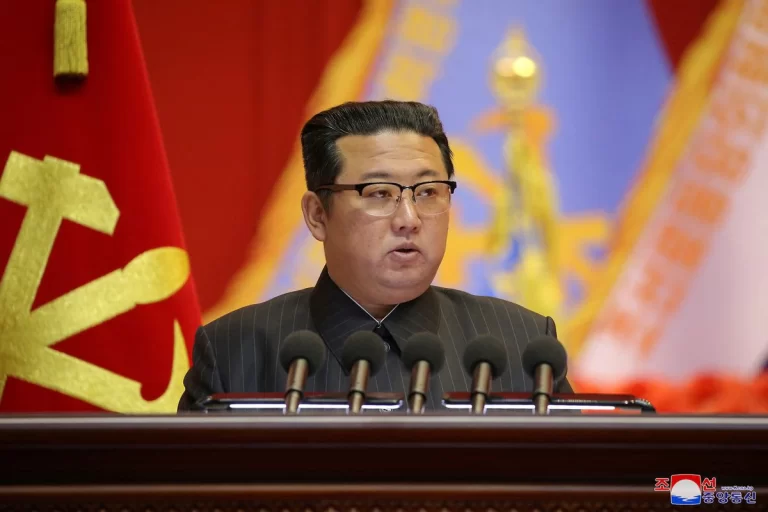
(Reuters) – North Korean leader Kim Jong Un praised outgoing Chinese Ambassador Li Jinjun for helping to improve relations between Pyongyang and Beijing, state media reported on Thursday, as the envoy left office after seven years in the post.
Kim’s comments were conveyed to Li by Choe Ryong Hae, a top official in the ruling Workers’ Party of Korea, state news agency KCNA said. Li also met with North Korean premier Kim Tok Hun, KCNA reported.
“Kim Jong Un highly praised the ambassador for successfully assisting several DPRK-China summit meetings over the past seven years, making much effort to develop the friendly relations between the two parties and the two countries and sharing bitters and sweets with the Korean people,” Choe told Li, using the initials of North Korea’s official name.
Kim is very satisfied that the North Korea-China relationship has entered a “fresh heyday” under the leadership of the ruling parties in each country, Choe said.
Li asked Choe to express his gratitude to Kim and congratulated the North Korean people on “making progress in all fields of socialist construction,” KCNA said.
China has been North Korea’s only major ally since the two signed a treaty in 1961, and international sanctions imposed over Pyongyang’s nuclear weapons and ballistic missile programmes have made it more dependent than ever on Beijing for trade and other support.
Since Li was appointed in 2015, relations between the two countries have seen major ups and downs.
Kim sent China-North Korea relations to a historical low by prioritising nuclear weapons and missiles development, then harshly criticising Beijing when it supported international sanctions
Starting in 2018, however, Kim managed to quickly repair ties and made his first known international trip as leader to meet with Chinese President Xi Jinping in Beijing. Xi later visited Pyongyang, the first by a Chinese leader in 14 years.
Li was one of a diminishing number of foreign diplomats in Pyongyang, as many embassies closed during North Korea’s strict anti-pandemic lockdown that blocked the rotation of new staff or ambassadors.






